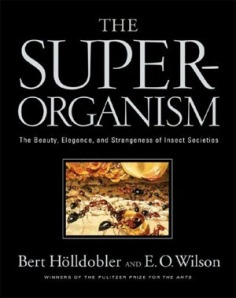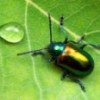 Who is supposed to read The Superorganism?
Who is supposed to read The Superorganism?
I can't really tell. While I'm enjoying Holldobler & Wilson's latest tome, I am perplexed at the book's target audience. The text switches between broadly anthropomorphic prose clearly aimed for a general audience and obtuse jargon digestible only by the experienced biologist.
I get the feeling that the authors- at least one of them, anyway- desired a technical book more along the lines of Bourke & Franks, while the marketing department at Harvard University Press wished to trade on the authors' name recognition with a glossy coffee-table production. The tug-of-war behind the scenes must have been impressive, and the effect is surreal. It's a bit like hanging your automobile's operating manual in a gilded frame over the mantle. The result is not unpleasant, mind you, but I can't help to think the authors missed an opportunity to produce either a comprehensive professional review or an engaging popular work instead of compromising in the middle.

Thanks for that review. I was contemplating buying this book, but I was wondering about its focus. I think that I'll stick with the two that you mention at the end.
It is nevertheless, an absolutely beautiful volume aesthetically. I especially appreciate the location of reference information in footnotes (as opposed to the most standard, but annoying location, at the end of the chapter or book). My gripe with the book lies in the lack of a formal definition for "superorganism," something that really ought to be at least a semi-important inclusion for a book with that title. Wheeler and Emerson discuss it to some extent, and a few other authors have put forward ideas... but is there a consensus? In what way does it even matter?
I am not a biologist just a budding cartoonist who is fascinated by social insects, especially ants... so I decided to take the plunge and read Holldobler and Wilson's book. I figure I can get the general concept of their theory on the superorganism, I mean it is a cool idea. So far my Bio101 classes have come in handy, although I feel there is a lot of detail I am missing. It is surely not a coffee table book read, but it is much more entertaining than a textbook.